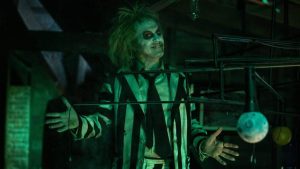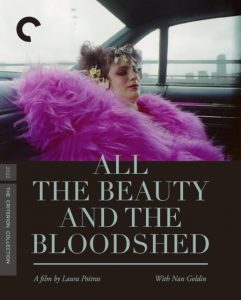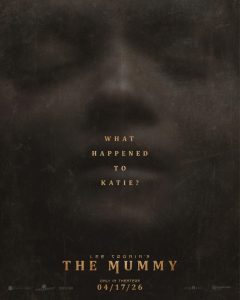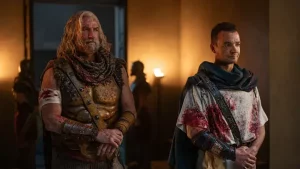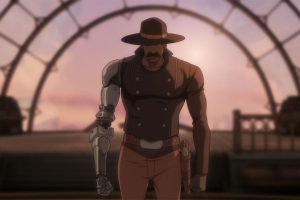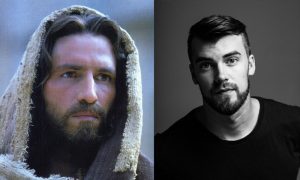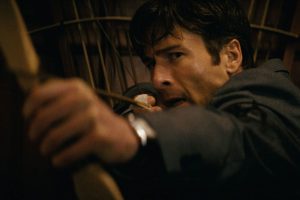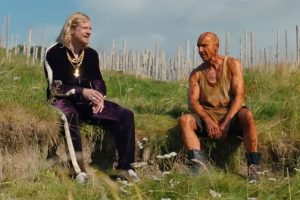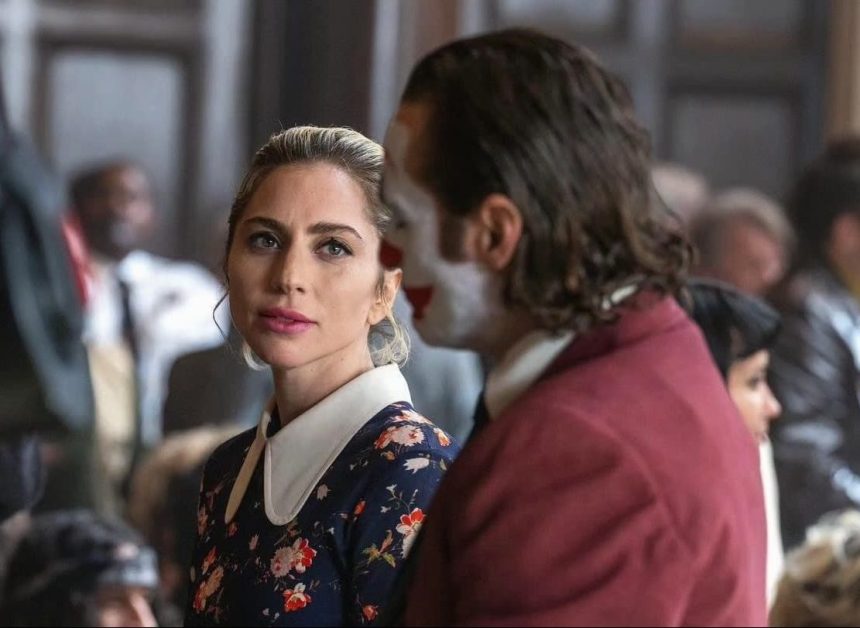
A BAD (AND DISAPPOINTING) JOKE
Released in 2019, Joker took the cinematic world by storm, showcasing a different side to the infamous “Clown Prince of Gotham” within an origin story that was more grounded in realism of today’s society and a very humanized depiction rather than a traditional comic book representation. Directed by Todd Phillips, the movie, which starred Joaquin Phoenix, Frances Conroy, Zazie Beetz, and Robert De Niro, follows Arthur Fleck, a failed clown performer and aspiring stand-up comedian whose decent into mental illness and nihilism leads to a violent revolution against the wealthy in a decaying Gotham City. Released on October 4th, Joker received a lot of praise from both moviegoers and critics alike, with many praising Phillips direction, an interesting script, a tactful social commentary message of society and mental instability, and a fantastic performance from Phoenix in the title character role. In addition, the movie made a huge success at the box office, grossing over $1 billion worldwide, becoming the highest grossing R-rated film of all time (until 2024’s Deadpool & Wolverine) as well as becoming the sixth highest grossing film of 2019. The film also received numerous accolades and nominations during the award season, including two Academy Awards wins at the 92nd Academy Awards for Best Original Score and Best Actor, becoming the first DC film to do so. Now, five years since the release of the film, Warner Bros. Studios and director Todd Phillips returns to the mental unstable mind of Arthur Fleck with the follow-up movie Joker: Folie à Deux. Does this sequel film rise to the same level of its 2019 predecessor or is it “shot in the dark” second chapter that doesn’t work and the “joke” is on us moviegoers?
THE STORY
Two years have passed since the death of talk show host Murray Franklin as well as the murder of five other individuals, with Arthur Fleck (Joaquin Phoenix) now residing in the custody of Arkham State Hospital, awaiting his trial for his murderous crimes. Arthur isn’t quite open to enjoying the fallout of his Joker persona that let loose, with the mentally unstable man stuck his prison cage and tormented by the guards, with Jackie Sullivan (Brendan Gleeson) particularly fond of abusing the inmate around for his enjoyment. During a visit to the minimum security wing, Arthur makes contact with Harleen “Lee” Quinzel (Lady Gaga), a patient there who’s been eager to meet Arthur, warming up to him, and he responds positively to the attention towards himself. As the trial begins, up and coming D.A. Harvey Dent (Harry Lawtey) looks to send Arthur to the electric chair for his crimes, but, while Arthur’s attorney, Maryanne Stewart (Catherine Keener), tries to persuade the courtroom of her client’s delusion with reality and of possible personality disorder, the accused isn’t interested in the trial. Arthur remains his fantasy world with Lee, with the pair turning to song to help him communicate, finding the dreamworld of his mind inviting for two disturbed individuals who can’t deal with reality. Yet, as the trial continues forward, Arthur confronts the truths to both of his realities of who he really is and those wanting him to see him as maniac psychopath….the Joker.
THE GOOD / THE BAD
I’ll be the first to admit that I wasn’t too “super excited” to see 2019’s Joker when it was first announced. I know that DC Comic movies (most in the DCEU) were still on the bumpy road and haven’t really found a proper rhythm within their cinematic releases; unlike its superhero cinematic universe rival from Marvel Studios, who had found a winning formula for mass selling to the public. So, when I first heard that Warner Bros. was making a solo origin movie about the Joker, one of most famous Batman villain in the entire comic book mythos to the popular superhero character, was a bit of a headscratcher. Plus, with the project being sold as a “grounded” narrative compared to the stereotypical superhero endeavors, I’ll also admit that I wasn’t completely sold on the idea of director Todd Phillips, the man behind various comedy movies like The Hangover, Road Trip, and Old School, to direct such a feature film. Thus, I was quite the skeptic going into seeing 2019’s Joker and figured that it was going to “miss the mark” that it was intended to aim for. However, I was quite surprised of the fact that I was wrong and that the film (to me, at least) was quite a brilliant piece of cinematic entertainment. It took a comic book character villain and made him the central focus, but didn’t give him the classic “taking over the world” bad guy mantra. In fact, Joker sort of “humanized” the character and gave him more of a sympathetic origin backstory that is a reflection of today’s viewpoints of society and mental health. Joker (i.e. Arthur Fleck) wasn’t looking for global domination or wanted to create anarchy among the populace or even looking to fight off other superhero crime do-gooders, but he was a byproduct of how today’s real world handles such neglectful views and criticisms towards the mentally unstable individuals and how society / government respond to such people who are diagnosis. This, of course, was the main crux of what director Todd Phillips wanted to project in the movie and I think he did a fantastic job by doing so and portray Arthur’s tale in such a way that was engrossing and engaging….right up the explosive final third act. Naturally, credit is giving to the wonderfully talented actor Joaquin Phoenix, who is always known for his inane and quirky character roles, did an absolutely incredible job in playing Arthur Fleck and showcased the off-beat human who wanted to make people laugh in his life, only to ridicule in diminutive way. It’s sad tale indeed and Phoenix imbues his performance with great effect within his dialogue delivery, mannerisms, and even physical body movement to help portrayal such a tragic character. Plus, his almost “descent into madness” bit into adopting his Joker persona was brilliant and (again) took centerstage during the final act. It’s no wonder why the movie made over a billion dollars at the box office. Overall, while one or two moments felt a bit “shoehorned” into the movie for the sake of the movie trying to tie its comic book roots to Batman, 2019’s Joker was a terrific film that encapsulates what filmmakers can do by reimagining older ideas and properties into ways that express something completely different from the conventional, turning a comic book villain character on its head and presenting something more grounded in realism and (maybe) a bit more disturbing on who the actual villain is….the individual or the society made him who he was? I guess that’s a question for the philosophers out there.
Naturally, this brings me back to talking about Joker: Folie à Deux, a 2024 musical / psychological thriller that acts as a follow-up sequel to 2019’s Joker film. Given the amount of praise and box office success that the movie had made during its theatrical release (as well as the award nominations), it was almost a forgone conclusion that Warner Bros. and DC Comics would want to recapture that “cinematic magic” once again with a sequel project endeavor in the works sometime after its initial release. Like many out there who loved the first movie, I was thrilled when the untitled Joker 2 was announced and that both Phillips and Phoenix would be coming back to their respective roles on the project. Even better that singer / actress Lady Gaga would also be attached the film and that she was going to be portraying Harleen Quinzel (aka Harley Quinn), the Joker’s lifelong partner-in-crime from the comic books. Thus, everything seemed to be in working order for another rousing success. However, while the film’s marketing campaign soon began to roll out with all the various movie trailers, TV spots, and other ads to help “sell the movie”, I did have some reservation about this upcoming sequel. Perhaps the most prevalent one is that 2019’s Joker was, for better or worse, a one-and-done movie, with the main narrative somewhat concluding everything. Yes, a continuation was possible, but was it really necessary as the film itself was good enough to be a self-contained project that could stand on its own merits and not so much possible sequels endeavors. So, yes, I did have a bit of mixed feelings of what Joker 2 (now being called Joker: Folie à Deux), but was hoping that those inane reservations that I had in the back of my mind were going to be put to rest when I went to go see the movie on its opening weekend. Before that, however, I read some advance reviews of the movie, with Joker: Folie à Deux being screened at the 2024 Venice Film Festival a few weeks prior to its October 4th, 2024, US release date, and that the reviews were mediocre at best, with many citing that it didn’t live up to its own hype nor to its 2019 predecessor. Again, those advance reviews seemingly confirmed my doubts. Still, I was hopeful (and optimistic) that the movie was going to be somewhat good and went to go see it on the day it was official release. And what did I think of it? Well, I do have to say that those advance reviews were mostly write. Despite some topical ideas, a great visual presentation, and a strong screen presence from Phoenix and Gaga, Joker: Folie à Deux doesn’t live up its own hype, producing a follow-up musical feature that doesn’t know what it wants to be and just simply ends up alienating a lot of moviegoers on a rather confusing and sometimes redundant sequel. You can definitely see where Phillips was going with this movie, but it never comes to fruition and ends up rather stuck in befuddling cinematic purgatory that can’t determine where to go.
As mentioned, Joker: Folie à Deux is directed by Todd Phillips, whose previous directorial works includes 2019’s Joker as well as other films like The Hangover, War Dogs, and Road Trip. Given his familiarity with a lot of more comedic films, Philips (much like what I said in my review of Joker) does like a bit of an odd choice to tackle a project like this, especially when expectations are at an all-time high. On the other hand, Philips’s knowledge and handling of 2019’s Joker was paramount importance of why that particular film succeed and does seem like a suitable choice to helm the follow-up feature to Joker. Thus, Philips’s return to the project was mostly a good move (in views of expectations), with Phillips delve back into the psychological mindset and grim reality of this movie’s world. To that end, Phillips certainly does succeed in bringing that atmospheric tone throughout the proceedings, with the feature once again “dancing to the beat on its own drum”. This is made abundantly clear right from the get-go, with Folie à Deux’s opening sequences being presented as a Looney Tune-esque cartoon, with goofy slapstick antics before transition into a more grim and dark “real world” reality. This, along with the various musical number scenes, give the movie a certain identity and shows that Phillips isn’t afraid to shy away from taking creative decisions and playing with people’s expectations. This tactic sort of backfires a little bit in Folie à Deux (more on that below), but, for what its worth, it’s something quite interesting and seeing the movie take a bit of a different approach, especially with the inclusion of musical sequences.
Like before, Folie à Deux strikes a chord within its own social commentary messages the feature is trying to convey within Arthur’s story. While not as heavily strong as the 2019 film, the feature continues to delve into the psychological understanding of mental health and how society does little to help alleviate this illness and rather poke fun at it or even encourage such behavior. This, of course, brings up the bigger commentary message in the movie, with such crude and crass behavior being craved by the masses, which is reflected in the movie in Arthur’s trial and the people (the media and his followers) jeering him on for his antics in his Joker persona. This is a clear reflection of how people, especially on social media, love watching / seeing others expressing bad or inappropriate behavior for the sake of entertainment, capturing that small moment of fame for the media’s attention, while the media (in turn) loves to capitalize on such terrible behavior for an uptick in their ratings and viewing numbers. It’s a vicious and disgusting cycle and clearly a byproduct of today’s world, with Folie à Deux showcasing that notion in how some of the public sees Arthur in the movie, but (more importantly) how Lee sees Arthur in the movie, wanting him to fully embrace and unleash the manic depravities of his Joker persona. To borrow the quote from 2009’s Girl with the Dragon Tattoo “The court of public opinion celebrates people’s bad behavior”, which is true in the real world as well as in Folie à Deux.
For its presentation, Folie à Deux does certainly have the same type “look and feel” of that of the first film and indeed “keeps up appearances” throughout its runtime. While I do certainly question the extremely large production budget for the movie (more on that below), the movie itself still carries the same type of visual bravado and cinematic styles of that of the 2019 project, with Phillps utilizing the same tone and aspect nuances in the correct way. Like before, the movie’s setting is still depicted as a grime and derelict urban landscape, filled with muted colors and drab appearances to continue to make the city of Gotham feel as if it has gone way beyond its one shining glorious days of yesteryear. Scenes within Arkham State Hospital (within its dank corridors and rooms) to the bleakness of the courtroom, each set piece and locale looks to be clinging onto its former glory as well as the citizens themselves, who are hopelessly stuck to urban lifestyle and attire. For that, I think that Phillips and his team did a great job by adding that particular continuity to the feature. The juxtaposition of this comes in the form of the musical numbers that are a bit more livelier with their color. Naturally, it’s not a cotton candy / eye-popping sequences of vibrancy and lush color palette, but it does more a bit more “life” in those scenes with more colors that are less muted and have a bit more “fanciful” movement in their background aesthetics, which is probably what Phillips wanted. This, of course, means (on both realities) that the film’s “behind the scenes” key players, including Mark Friedberg (production design), Karen O’Hara (set decorations), Arianne Phillips (costume designs), and the various members of the art direction team as well as the hair / make-up department for their efforts in making the movie’s world come alive with both realism and fantasy in Folie à Deux setting.
Perhaps the “big winner” of the presentation category would definitely have to be the cinematography work by Lawerence Sher, who had previously worked on Joker, and comes back within some great and slick shots throughout the entire feature. There’s definitely something to say about Sher’s direction, with almost every scene that are heavily utilized lightening, shadowing, and camera angle are very expressive in what the want to convey, especially in some bigger important moments in the film’s narrative, including the musical number moments. Lastly, the movie’s score, which was composed by Hildur Guðnadóttir (who had composed the music for the previous Joker feature) returns and continues a very downplayed and melancholy melody that certainly drives that point home within a lot of scenes throughout the movie. It’s definitely quite the “mood” sounds of what to be expected (like the first film did) and I think that Guðnadóttir delivers that sounds once again in this sequel picture. Great job!
Unfortunately, Folie à Deux isn’t quite the movie it ultimately ends up being, changing it up for expectations reasons that, while might look good on paper, end up hindering the feature as a less quality film to its 2019 predecessor. How so? Well, for starters, the movie itself doesn’t really go anywhere beyond retreading a lot of plot points and story narrative from the first film, never pushing forward into new territory as much as it could’ve been. Yes, the movie continues to follow Arthur Fleck and how the fallout of the feature’s ending does have a sort of “ripple effect” with the followers of his Joker persona and dealing with the aftermath of it all. However, the movie itself doesn’t know how to handle such nuances the correct way, especially in both terms of direction and in the feature’s script, which results in a rather quasi- Joker 1.5 type feeling instead of an actual Joker 2 endeavor. This capsulates the narrative pacing and uneven storytelling elements that the movie presents within its feature and ends up backfiring a lot more than actually progressing things forward.
As mentioned, part of the problem lies within the film’s script, which was penned by Phillips as well as Scott Silver, with the bulk of the feature having two primary settings and almost feels like two different Joker movies combined into one, with the former set in Arkham State Hospital and the latter being inside the courtroom. Thus, the juxtapositions of being a psychological drama and legal drama doesn’t exactly mesh well the correct way, with the script trying to juggle both of those aspects properly, but failing to do so. The basically just ends up being rather bland and boring, with characters just talking dialogue moments that feel too much posturing and not enough substance within the tale being told. There is also the poor execution of certain characters, with the character of Harley “Lee” Quinzel being one of the prime examples of this and fails to deliver on a compelling character arc. Again, it’s all a bit misdirected (probably intended to be), but it ends up alienating a lot of moviegoers out there, including myself, with such misguided attempts that don’t exactly work. Furthermore, the script needs to be better handled and given a better substance within its plotting and storytelling, with Folie à Deux feeling empty and creating numerous pacing issues within its bland attempts for enticement of courtroom legal drama and musical number. Plus, everything about the script seems less sharp from the attempt made in the first film, creating a rather clunky story progression that (again) goes nowhere and does little to move things along.
This also can speak to the film’s ending and how it doesn’t feel right. It’s hard to fully talk about this particular scene without spoiling it for my readers out there, but I do have to say that this felt almost like a “cop out” for this movie as well as 2019’s Joker. The final closing moments don’t exactly feel earned and kind of leaves a very unsatisfying taste in mouth, which will definitely have the same effect with others out there. I definitely can see where the script was going with it, but (again) doesn’t feel earned and is very frustrating.
For the direction of the movie, Phillips seems rather lackluster and aimless in helming this particular sequel, with Folie à Deux feeling rather bloated and misguided throughout the entire project. While not totally confirmed, there have been plenty of rumors circling around the idea that Phillps had really no intention to make a sequel and that Warner Bros., giving the fact the first film made so much money, demanded on and gave the director “free reigns” on this sequel. I, for one, believe this to be true as Phillips intent for this movie seems quite aimless, creating rather elongated sequences than end up being rather pointless or just a bit redundant by restating a lot of facts and scenarios from the previous installment. There’s definitely a bloated feeling throughout, with long and lengthy character dialogue moments (speeches or rambling interactions) that linger quite longer than intended, with Phillips trying and failing to capture a certain spark of cinematic magic like he did before. In Folie à Deux, he definitely struggles with a plethora of longwinded sequences that seem only to pad out the film’s runtime and fizzling out the excitement and intensity, which results in a rather less entertaining and intriguing narrative of psychological understanding of an unstable man and the toxic fanbase he created around his psychotic “joker” personality. Like the writing for this movie, I think that Phillips needed a better grasp on the direction of the film and have firmer understanding of what made the first Joker movie so exciting and thrilling. In the case of Folie à Deux, he squanders that opportunity and delivers a rather bland and uninteresting feature that is at odds with its own itself…..and for a movie to do that…..that never good thing.
This then brings up the musical sequences that are scattered throughout the movie and how they work. I get why Phillips utilized them and (as mentioned above) was a bold choice to be presented in Folie à Deux, bringing a new layer of interest to differentiate itself from other modern day superhero films of late. Still, while those moments are quite beautifully rendered and stage correctly, it ultimately distracts from the actual main narrative being told, padding the feature’s runtime extensively with long sequences that really don’t go anywhere. Basically, the movie could’ve removed many of these songs (or all of them), which would leave Folie à Deux to have a very leaner runtime of a short animated motion picture length (or even shorter). Plus, the song themselves, while mostly covers of once popular hits, aren’t exactly memorable hits. Like…I can’t remember a single one and I’m not racing to buy the film’s soundtrack. The songs sung are good by the acting talents (more on that below), but nothing to be “wowed” over.
Lastly, as a minor criticism, the film’s budget seems quite ridiculous and (to me, at least) wasn’t allocated the right and effective way? What do I mean? Well, for those who don’t know, Folie à Deux had quite an extremely large production budget that was roughly around $200 million; something that is only reserved for summer blockbusters and / or high profile tentpole studio releases. This particular movie would probably fit into the latter, with Warner Bros trying to capitalize on the success of the first Joker. However, given what was shown in the movie, I personally think that this feature wasn’t quite the “ballooned” production budget. I could understand for a few scene moments here and there, but I can’t see why the budget was so high for Folie à Deux. As many know, the classic saying “the bigger the budget, the bigger the success” doesn’t always mean a winning formula for success and no guarantee for a return on investment. Basically, in a post covid day world when many studios are revaluing and reexamining their production budgets for their feature film releases, Folie à Deux confirms that some studio releases are learning the wrong lessons about a return on their investments and how a movie’s production budget needs to be smartly utilized the correct way.
The cast in Folie à Deux is pretty good and helps bring these characters to life, with some familiar faces returning to the project as some new ones. Despite the strong acting talent attached to the project, some of the narrative bits (as mentioned above) still don’t quite catch up the correct way, which certainly does render many of the characters rather redundant and / or incomplete within the story being told. Leading the charge in the film (as well as headlining the feature) is actor Joaquin Phoenix, who comes back to once again reprise his character role of Arthur Fleck. Known for his roles in Gladiator, The Master, and Walk the Line, Phoenix has been a little bit of an “oddball” and his past character performance and / or the movies that he usually partakes in captures the essence of that quite well. Thus, the idea of him playing the “Clown Prince of Gotham” is really no stretch of the imagination and Phoenix did certainly exceed my personal expectations in 2019’s Joker. So, to see him once again playing such a such a character is quite a delightful treat, delving back into the enigmatic mindset of both Arthur Fleck and in his Joker personas. His body movements and mannerisms continue to be quit amazing and deliver another rousing character portrayal throughout. Plus, Phoenix seems to know the Arthur Fleck inside out and is quite confident in playing the part both Arthur and (within his musical dream-like sequences) the Joker.
Perhaps the big downside is how Arthur Fleck is written in the movie and how the story unfolds in Folie à Deux. Again, it’s not downright terrible, but (again) it undoes what the first film was setting him (as a person) to be and just basically showcases a conflicted man, who doesn’t really know who he wants to be. Given the movie’s premise and narrative, there could’ve been a better way to handle such a duality in Arthur in way that felt more meaningful and earned, which would’ve been a better heightened conflict for Arthur (as a character) to decide on which personality to fully embraced. As it stands, the movie offers up a confusing and sometimes befuddling journey arc for Arthur in Folie à Deux; one that doesn’t really add up and lessens the impact of what the previous Joker film was able to achieve. Thus, Phoenix’s portrayal of the character still definitely works and still continues to give a solid performance, but the character itself in the movie is rather clunky and mismanaged, undermining the potency and palatability of what could been something truly great for this sequel endeavor.
Behind Phoenix, Folie à Deux shines a cinematic light on the character of Harley “Lee” Quinzel, an inmate at Arkham State Hospital who becomes quite attracted to Arthur throughout the movie and who is played by singer / actress Lady Gaga. Known for her roles in A Star is Born and House of Gucci, Gaga has certainly made a name for herself in the acting world that, while only two major roles, still manages to make for some compelling characters in their own respective rights, with Gaga herself fully embracing and demonstrating her acting chops within such “meaty” material. Thus, it comes as no surprise that Gaga would want to tackle such a role Harley Quinn, the famous comic book side-kick companion to the Joker. I think her acting performance as Lee was good in the movie as Gaga handles herself quite well whenever she was on-screen, especially when being paired up with Phoenix. Plus (and this comes at no surprise) that Gaga’s musical singing performances in the film are solid across the board and does handle herself quite well within her so-called “natural element”.
However, as I mentioned above, those same songs in the musical numbers don’t exactly “hit home” as expected, especially when considering Gaga singing them. Thus, those expecting the pop singer to drive home those performances like “Hold My Hand” from Top Gun: Maverick or “Shallows” from A Star is Born….if you get my point. Thus, while Gaga’s singing voice is quite palatable, the song themselves aren’t. As for the character of Lee herself, I definitely get where they were going with the portrayal and persona of her, yet it still feels hollow. Plus, as stated, there isn’t much to the Harley in the movie, which is disappointing, especially since she’s a classic partner-in-crime to Joker from the comic book source material. Such potential feels wasted and gets really frustrating as to what’s been presented in the film’s narrative, with only Gaga trying to hold the character. In the end, while I think Gaga was a good choice to play Harley Quinn in the movie, how she was written and overall presented in Folie à Deux is quite a misstep and feels almost like an afterthought as some points.
There isn’t much of large supporting character roles in Folie à Deux, especially a large emphasis is placed on the screen presence of both Phoenix and Gaga in their lead featured roles. That being said, the film does shine a spotlight on two particular characters in the form of Jackie Sullivan, an abusive guard at Arkham State Hospital, and Harvey Dent, the newly elected assistant district attorney who is planning to bring Arthur’s crimes to justice, who are played by actors Brendan Gleeson (Harry Potter and the Goblet of Fire and The Banshee of Inisherin) and Harry Lawtey (Industry and The Pale Blue Eye). Of the two, Gleeson is the clear winner due to his acting talent and screen presence, which does make Jackie Sullivan memorable in the movie in such a corrupt and power hungry guard. As for Lawtey, I think he did a good job and would’ve liked to seeing more of him in the movie. Though (at the same time), I think that he was a little bit “shoehorned” into the material, but, on the other hand, I kind of figured that Phillips would try to do something like put another Batman character into this sequel, with Harvey Dent being the most comparable one. Still, I kind of pictured, given Lawtey’s looks, bravado, and appearance as Harvey Dent, would’ve been a little bit better utilized within DC’s other Elseworlds movies (i.e. Reeve’s The Batman) and would’ve been cool to see him along side Robert Pattinson’s Bruce Wayne.
The rest of the movie’s cast, which includes actor Ken Leung (Lost and Rush Hour) as psychologist Dr. Victor Liu, actor Jacob Lofland (Maze Runner: The Death Cure and Mud) as Arkham inmate Ricky Meline, actor Bill Smitrovich (Air Force One and The November Man) as Judge Herman Rothwax, actor Steve Coogan (Philomena and The Trip) as popular TV personality Paddy Meyers, and actress Catherine Keener (Get Out and Incredibles 2) as Arthur’s lawyer Maryanne Stewart, are delegated supporting players in the film (both secondary and minor ones). While there screen time is limited here and there, I think that all the acting talent involved in this grouping still gives good character roles in their respective roles.
FINAL THOUGHTS
Who is on trial…. Arthur Fleck or the Joker? Are they two different personalities or one in the same? Such are the questions posed as Arthur’s trial for his murderous crimes begins, while the sudden appearance of Harley “Lee” Quinzel complicates matter within the mentality unstable man in the movie Joker: Folie à Deux. Director Todd Phillips latest film sees the return of his more “grounded” vision of the classic Batman villain with this sequel acting more like psychology / crime drama than a superhero film endeavor, which seeks to pose fundamental questions about reality and fantasy as well as further continuing the awareness of mental instability and how society falters within that regard. Unfortunately, while the movie does have some meaning within its commentary themes, visual presentation, and solid acting talent across the board, the film seems at odds with its own cinematic self, especially with Philips’s direction, numerous retreads / redundant scenes, semi-boring at times, pointless musical interludes, unmemorable songs, and quite the missed opportunity in a lot of meaningful areas of both story and characters. Personally, I was disappointed with this movie. I give credit where credit is due as the film isn’t quite as downright terrible as some out there are making it out to be, but I do have to say that the movie is quite the letdown and disappointment, especially after what 2019’s Joker was able to accomplish. The misdirection and misguided attempts of what faltered this highly anticipated sequel. There’s a boldness to “break from the mold” felt in the movie, especially in the musical number sequences, but it all felt superfluous and distracted more from the picture than enriching it. Phoenix and Gaga were great, but their characters were bland, weak, and sometimes clunky handled. Plus, the ending left a sour taste in my mouth. Basically, it wasn’t worth the hype and somewhat tarnishes the first film, which is never a good thing and I have very little reason to revisit this film again. Thus, my recommendation for the feature would be sad “skip it” as it does little to advance the overall character / story, which will definitely frustrate fans and moviegoers alike within a pointless and aimless direction. Just watch the first Joker film again instead of watching this continuation…. you’ll thank me. In the end, Joker: Folie à Deux, while being one of the biggest and most anticipated films of 2024, was quite the letdown in its promised follow-up to its 2019 predecessor, producing a sequel that feels confusing, tiresome, and undirected in a way that comes off as a bloated cinematic mess. In short, Joker: Folie à Deux’s biggest failure is the “unfilled potential” that the movie had and squandered it utterly and completely.
2.2 Out of 5 (Skip It)
The Official Website for Joker: Folie à Deux Link: HERE
Released On: October 4th, 2024
Reviewed On: October 27th, 2024
Joker: Folie à Deux is 138 minutes long and is rated R for some strong violence, language throughout, some sexuality, and brief full nudity
The post Joker: Folie à Deux (2024) Review appeared first on Jason’s Movie Blog.
